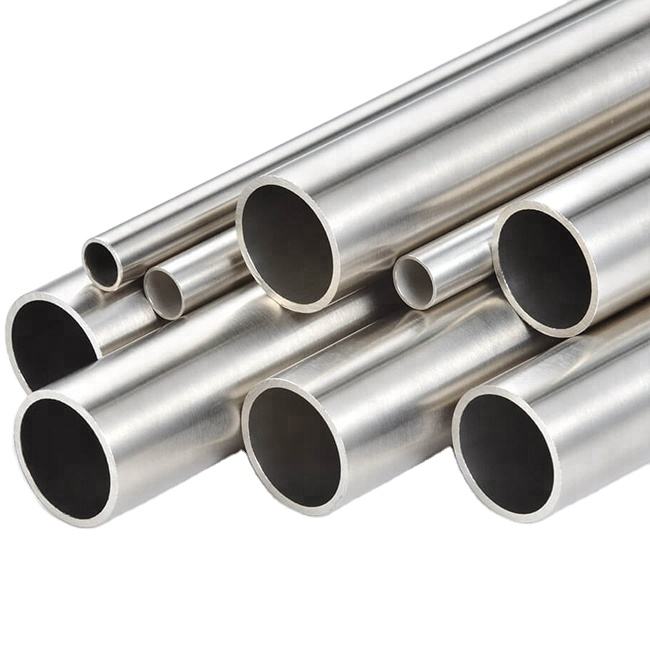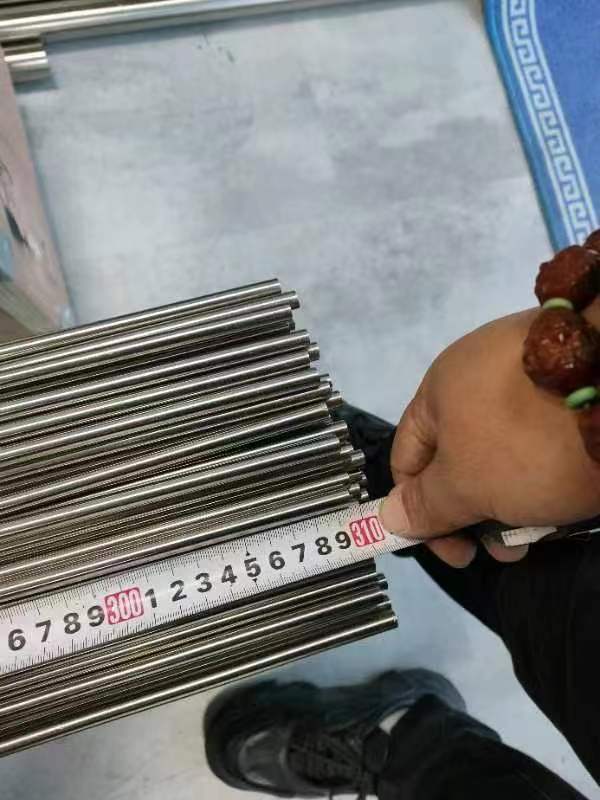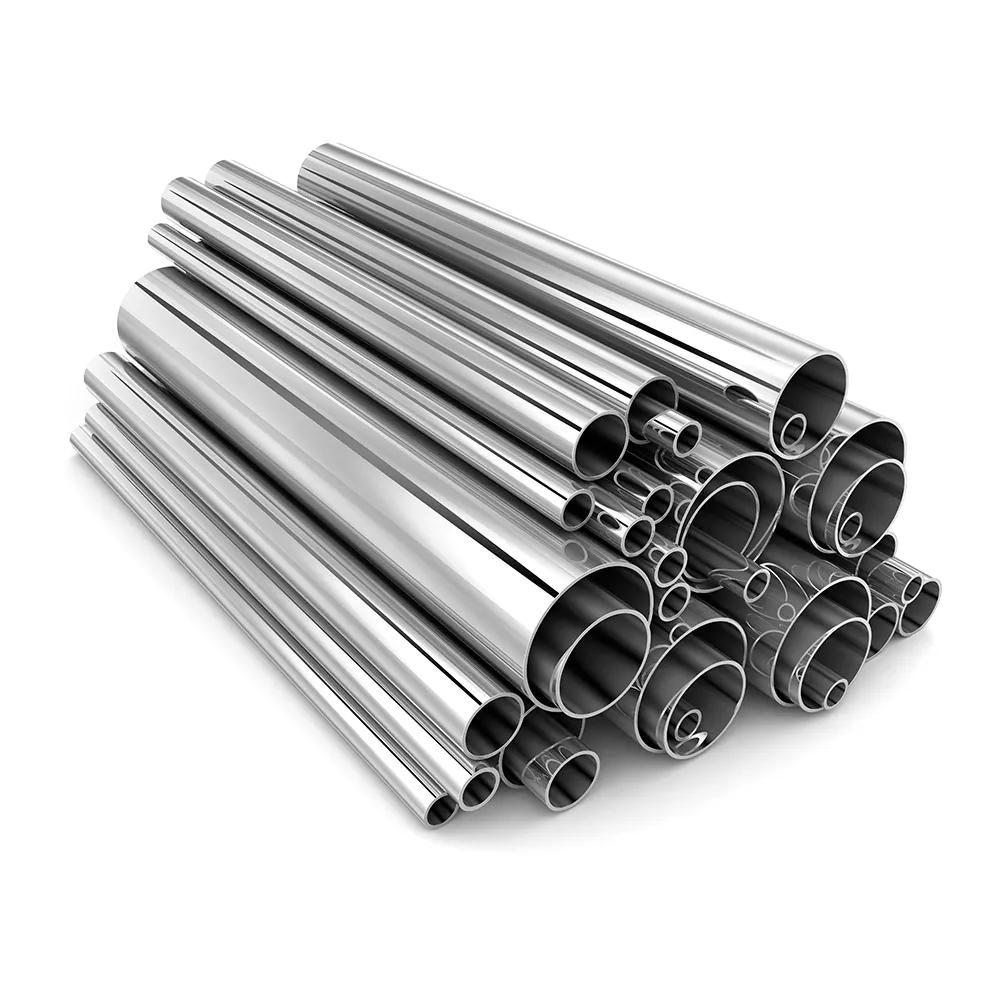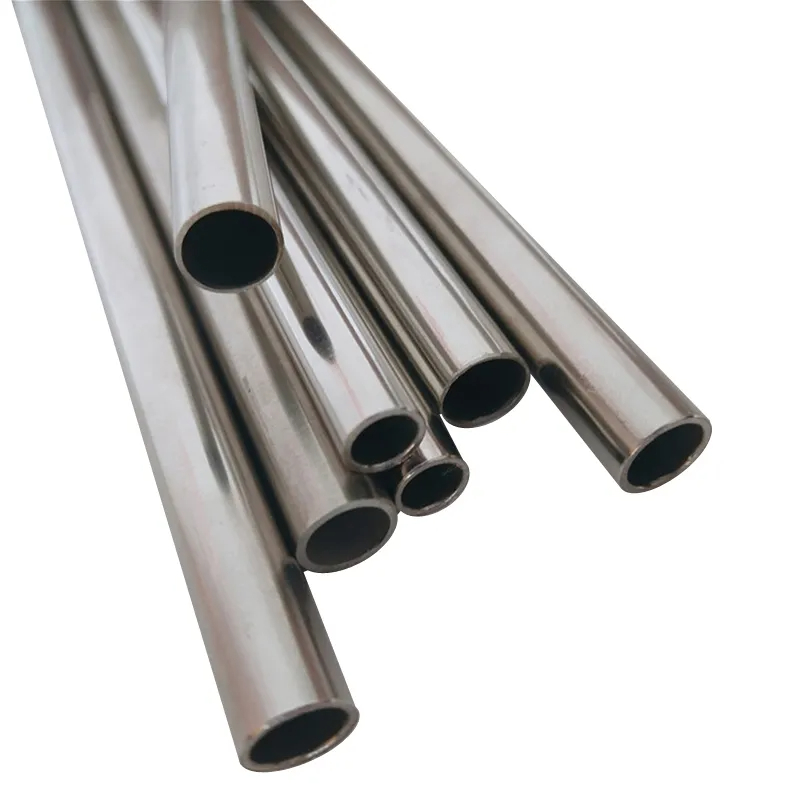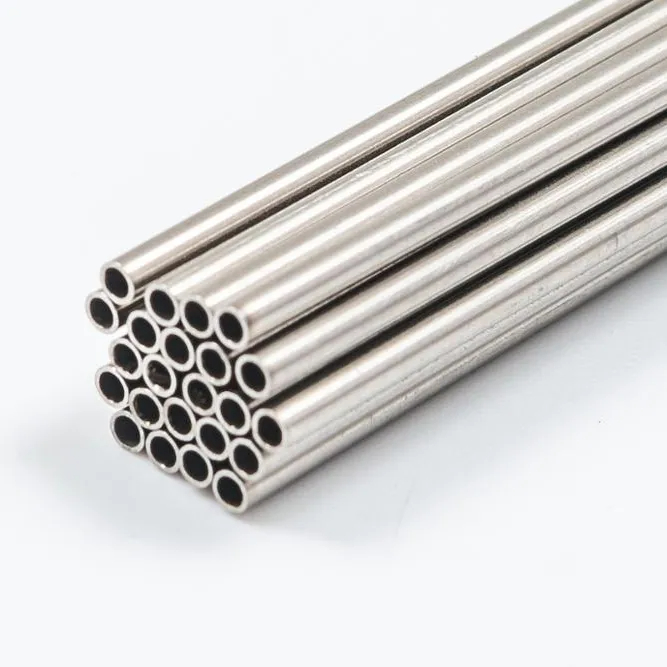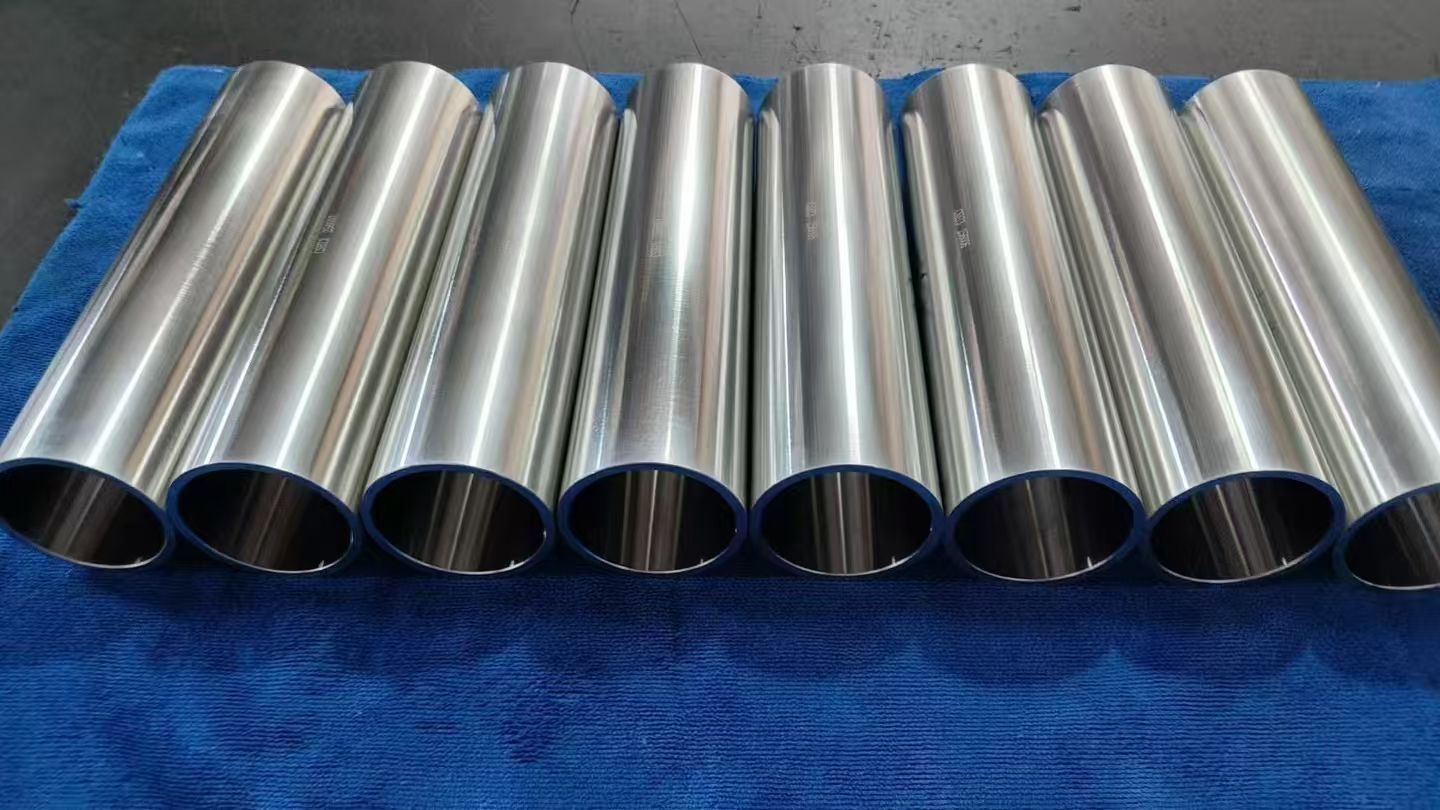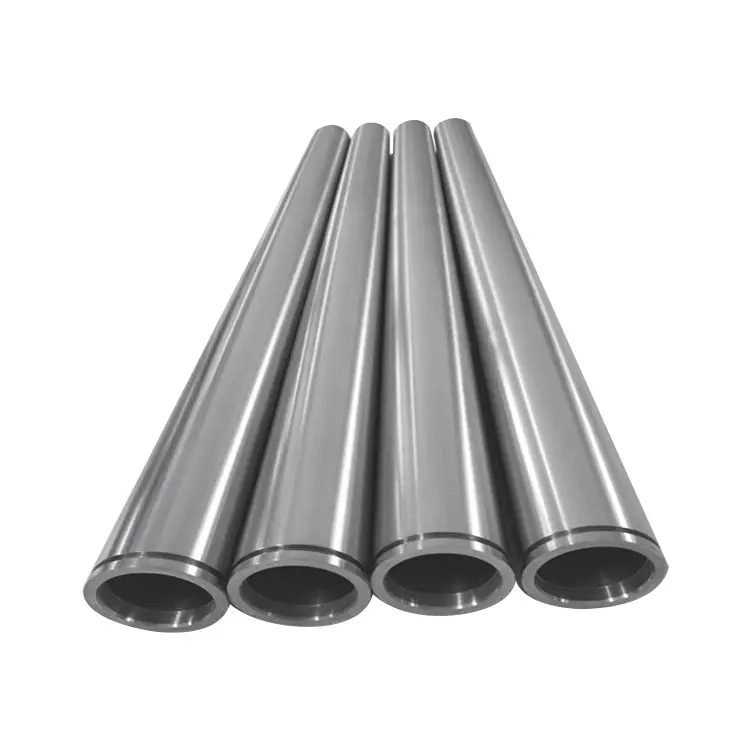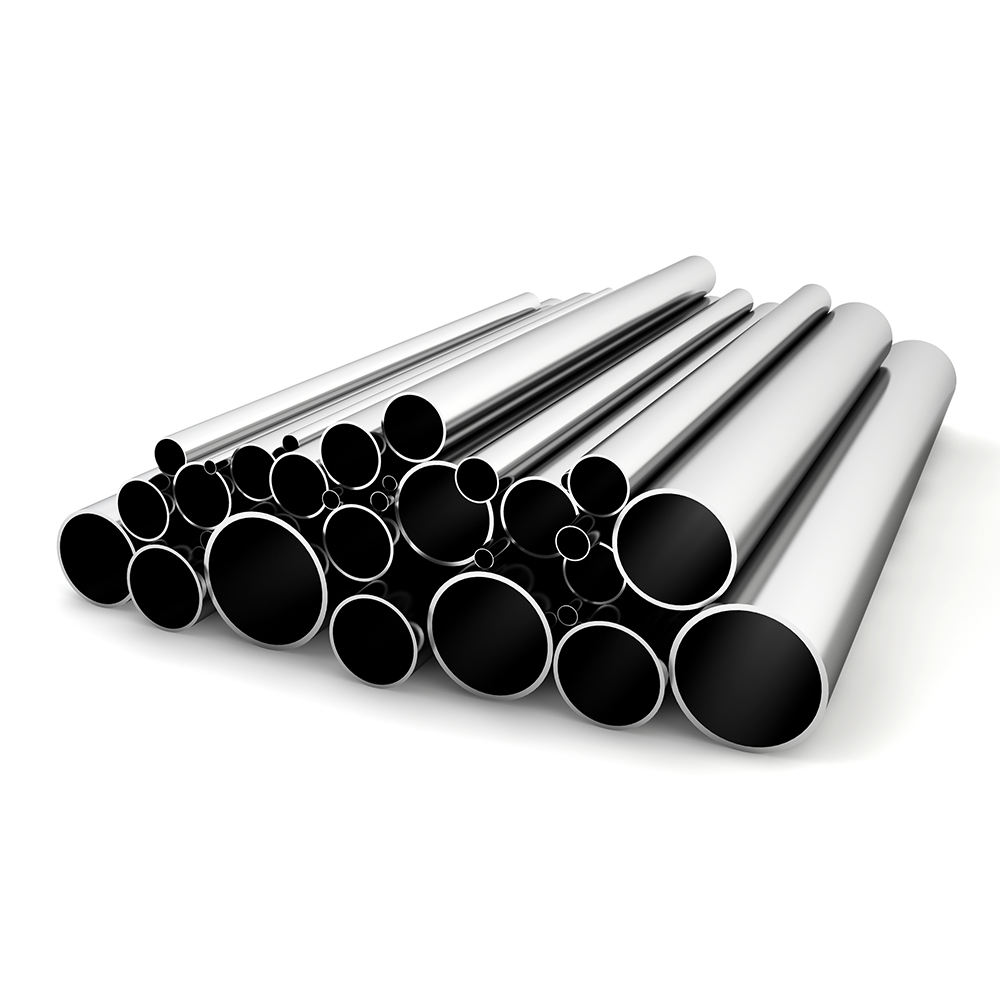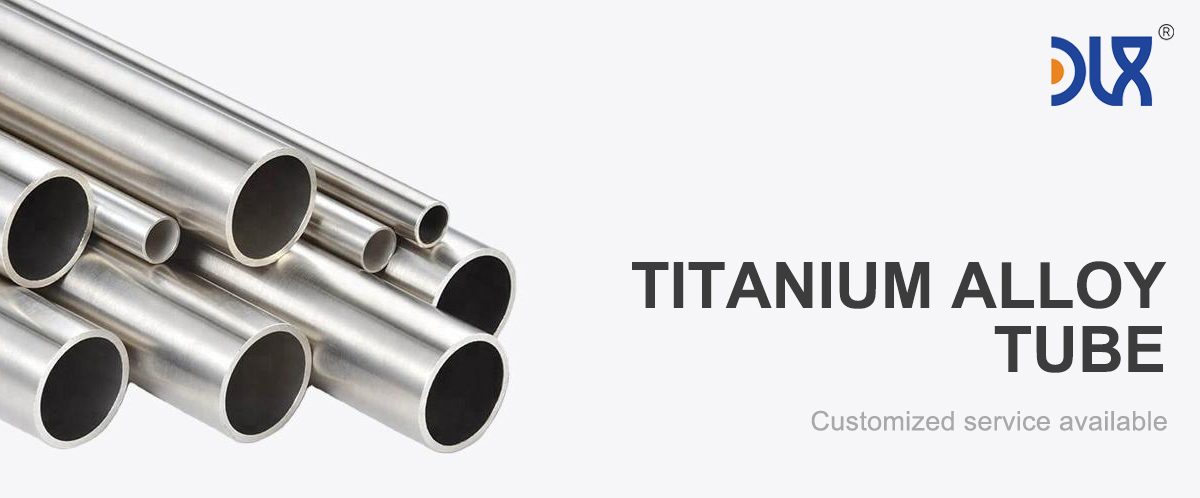
Our Grade 7 Titanium Tube s are engineered to thrive in the brutal conditions of chemical plants. These tubes, made from titanium alloyed with 0.12–0.25% palladium, deliver unmatched corrosion resistance, especially in reducing acid environments like sulfuric or hydrochloric acid. Meeting ASTM B338 standards, they’re the go-to choice for chemical processing systems that demand reliability and longevity. Whether you’re running a heat exchanger or piping corrosive fluids, our Grade 7 titanium tubes are built to keep your operations running smoothly.
For more details, pls directly contact us.
Grade 7 titanium is a rockstar in chemical plants for one big reason: its corrosion resistance is next-level. The addition of palladium gives it an edge over other titanium grades, making it a beast against reducing acids that would eat through lesser materials. With a density of about 4500 kg/m³, it’s much lighter than stainless steel (8000 kg/m³) or nickel alloys (8400 kg/m³), which makes installation easier and reduces structural load. Its tensile strength, ranging from 345 to 450 MPa, is plenty for most chemical plant applications, balancing durability with flexibility.
These tubes laugh off corrosion in harsh environments where acids, chlorides, or salts are present. They also resist pitting and crevice corrosion, which is a big deal in chemical processing where small failures can lead to big problems. They hold strong at temperatures up to 400°C, perfect for high-heat processes like distillation or reaction vessels. Plus, their fatigue resistance means they can handle the vibrations and cyclic stresses common in chemical plants without cracking or failing.
Applications in Chemical Plants
Our Grade 7 titanium tubes are a staple in chemical processing. They’re used in heat exchangers, where they transfer heat between corrosive fluids without breaking down. In reactors, they handle aggressive chemicals under high pressure and temperature. Piping systems? You bet—they move acids, alkalis, and other tough substances without corroding or leaking. Their smooth surfaces also reduce fouling, keeping systems efficient and cutting down on maintenance.
But their use doesn’t stop at chemical plants. These tubes are also a hit in desalination, where their corrosion resistance tackles seawater. In power generation, they’re used in condensers and cooling systems. Even in pharmaceutical manufacturing, their inert nature makes them ideal for handling sensitive compounds. But for us, chemical plants are where Grade 7 titanium truly shines, delivering reliability in the most demanding conditions.
| Titanium (Ti) | Aluminum (Al) | Vanadium (V) | Tin (Sn) | |
| Ti-6Al-4V | Rest | 5.5%-6.8% | 3.5%-4.5% | |
| Ti-5Al-2.5Sn | Rest | 4.5%-5.5% | 2.0%-3.0% |
Physical Properties
| Density | 4.4-4.5g/cm³ |
| Melting Point | 1660°C |
| Coefficient of Thermal Expansion | 8-10×10⁻⁶/K (20°C-500°C) |
| Thermal Conductivity | 6-22 W/(m·K) (depending on alloy grade) |
| Electrical Resistivity | 0.14-0.17 μΩ·m |
| Tensile Strength | 600-1200 MPa (depending on alloy grade) |
| Yield Strength | 480-1100 MPa |
| Elongation at Break | 10%-25% |
| Hardness | 200-400 HB |

For more details, pls directly contact us.
The chemical processing industry is evolving fast, and our Grade 7 titanium tubes are keeping pace. The global chemical industry is projected to grow from $4.7 trillion in 2023 to $6.4 trillion by 2030, with a CAGR of 4.5%. This growth is fueling demand for materials that can handle increasingly complex and corrosive processes. Grade 7 titanium fits the bill, especially in plants dealing with reducing acids or high-chloride environments.
Sustainability is another big driver. Chemical plants are under pressure to reduce waste and improve efficiency, and our tubes help by lasting longer and requiring less maintenance. The rise of green chemistry—focused on eco-friendly processes—also plays a role. Titanium’s recyclability and durability make it a sustainable choice, aligning with industry goals to cut environmental impact.
Additive manufacturing is changing the game, too. It lets us produce complex tube designs with less material waste, lowering costs and opening up new possibilities for custom components. As chemical plants expand into emerging markets like Asia-Pacific and the Middle East, demand for corrosion-resistant materials like Grade 7 titanium is skyrocketing.
How We Stand Out
Our Grade 7 titanium tubes are a cut above, and it’s not just because of the material. We manufacture to strict ASTM B338 standards, using advanced techniques like seamless welding and precision cold drawing to ensure flawless quality. Every tube undergoes rigorous testing—think ultrasonic and hydrostatic checks—to guarantee zero defects. Our palladium-enhanced alloy is sourced from high-purity titanium sponge, giving you consistent performance every time.
Customization is a big part of our game. Whether you need specific diameters, wall thicknesses, or surface finishes, we tailor our tubes to fit your project like a glove. Our heat treatment processes, like annealing or stress relieving, optimize the tubes’ microstructure for maximum corrosion resistance and strength. And our supply chain? It’s ironclad, with global sourcing and quality control that ensures every batch meets your specs.
Compared to a typical competitor, our tubes offer better corrosion resistance in reducing acids, thanks to our precise palladium alloying. We also deliver tighter tolerances and smoother surfaces, which means less fouling and better flow in your systems. Our lead times are shorter, and our technical team works with you from design to installation, ensuring your project stays on track. Whether it’s a single reactor or an entire plant, we’ve got the expertise to make it happen.
Overcoming Challenges
Grade 7 titanium comes with a higher price tag than stainless steel, and its low thermal conductivity can make machining a challenge. But we’ve got it covered. Our advanced manufacturing—think automated welding and 3D printing—helps keep costs down while maintaining quality. We use specialized tooling to tackle titanium’s quirks, ensuring smooth production and consistent results. For budget-conscious projects, we optimize designs to use less material, like thinner walls or shorter lengths, without sacrificing performance.
Comparison Table: Grade 7 Titanium vs. Stainless Steel vs. Nickel Alloy for Chemical Plant Applications
|
Parameter |
Grade 7 Titanium |
Stainless Steel |
Nickel Alloy |
|---|---|---|---|
|
Density (kg/m³) |
~4500 (Low) |
~8000 (High) |
~8400 (High) |
|
Tensile Strength (MPa) |
~345–450 (Moderate) |
~520–690 (Moderate) |
~690–1000 (High) |
|
Corrosion Resistance |
Excellent (Superior in reducing acids) |
Good (Vulnerable to pitting in acids) |
Very Good (Less effective in reducing acids) |
|
Thermal Conductivity (W/m·K) |
~15–22 (Low, retains heat) |
~15–25 (Moderate) |
~10–15 (Low) |
|
Max Service Temperature (°C) |
~400 (High) |
~800 (Very High) |
~600 (High) |
|
Resistance to Reducing Acids |
Excellent (Palladium-enhanced) |
Poor (Prone to corrosion) |
Moderate (Varies by alloy) |
|
Fatigue Resistance |
Good (Handles cyclic loads well) |
Good (Moderate under stress) |
Very Good (Strong but costly) |
|
Cost |
Higher (Premium material) |
Moderate (Widely available) |
High (Expensive for specialized alloys) |
The future is bright for Grade 7 titanium in chemical processing. As plants push for higher efficiency and sustainability, demand for corrosion-resistant materials will only grow. Our tubes are ready to meet that demand, offering unmatched durability in the harshest environments. Emerging technologies like green hydrogen production and carbon capture will rely on materials that can handle aggressive chemicals, and Grade 7 titanium is a perfect fit.
Additive manufacturing will keep driving innovation, letting us create complex, lightweight components that were once impossible. Sustainability will also shape the industry, and our eco-friendly production processes—combined with titanium’s recyclability—put us at the forefront. As chemical plants expand globally, especially in regions with harsh operating conditions, our tubes will be there to keep operations running smoothly.
Why Choose Our Grade 7 Titanium Tubes?
Our Grade 7 titanium tubes are built to take on the toughest chemical plant challenges. They’re corrosion-resistant, durable, and tailored to your needs, making them the perfect choice for heat exchangers, reactors, and piping systems. With our cutting-edge manufacturing, flexible customization, and rock-solid quality control, we’re not just selling tubes—we’re delivering solutions that keep your plant running at peak performance.
Ready to boost your chemical plant’s reliability? Our team is here to provide the perfect Grade 7 titanium tube solution, designed to fit your project and built to last. Let’s make your next project a success with the power of titanium.
For more details, pls directly contact us.
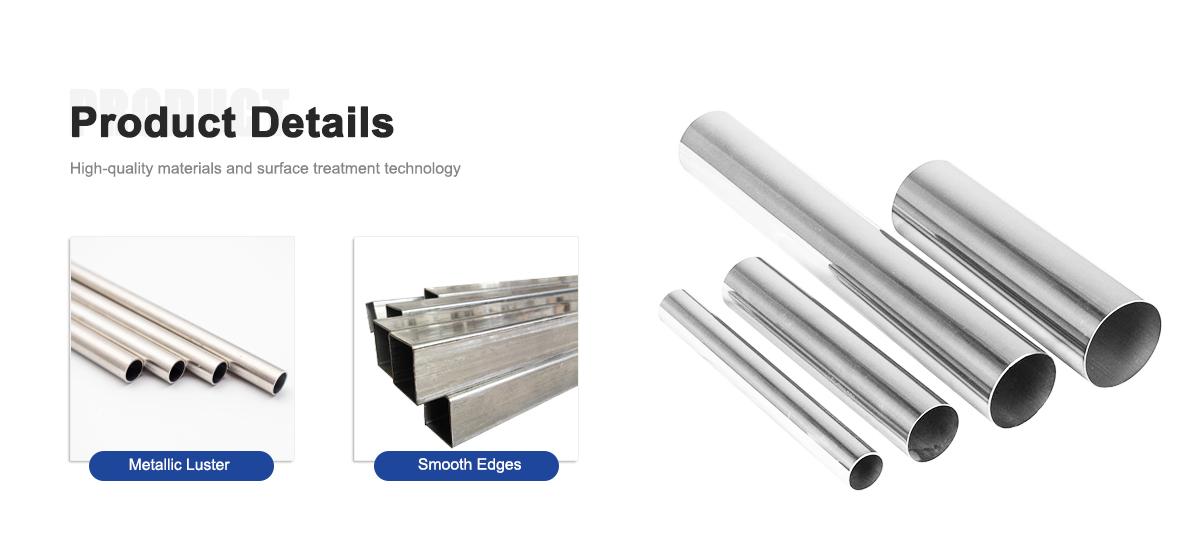
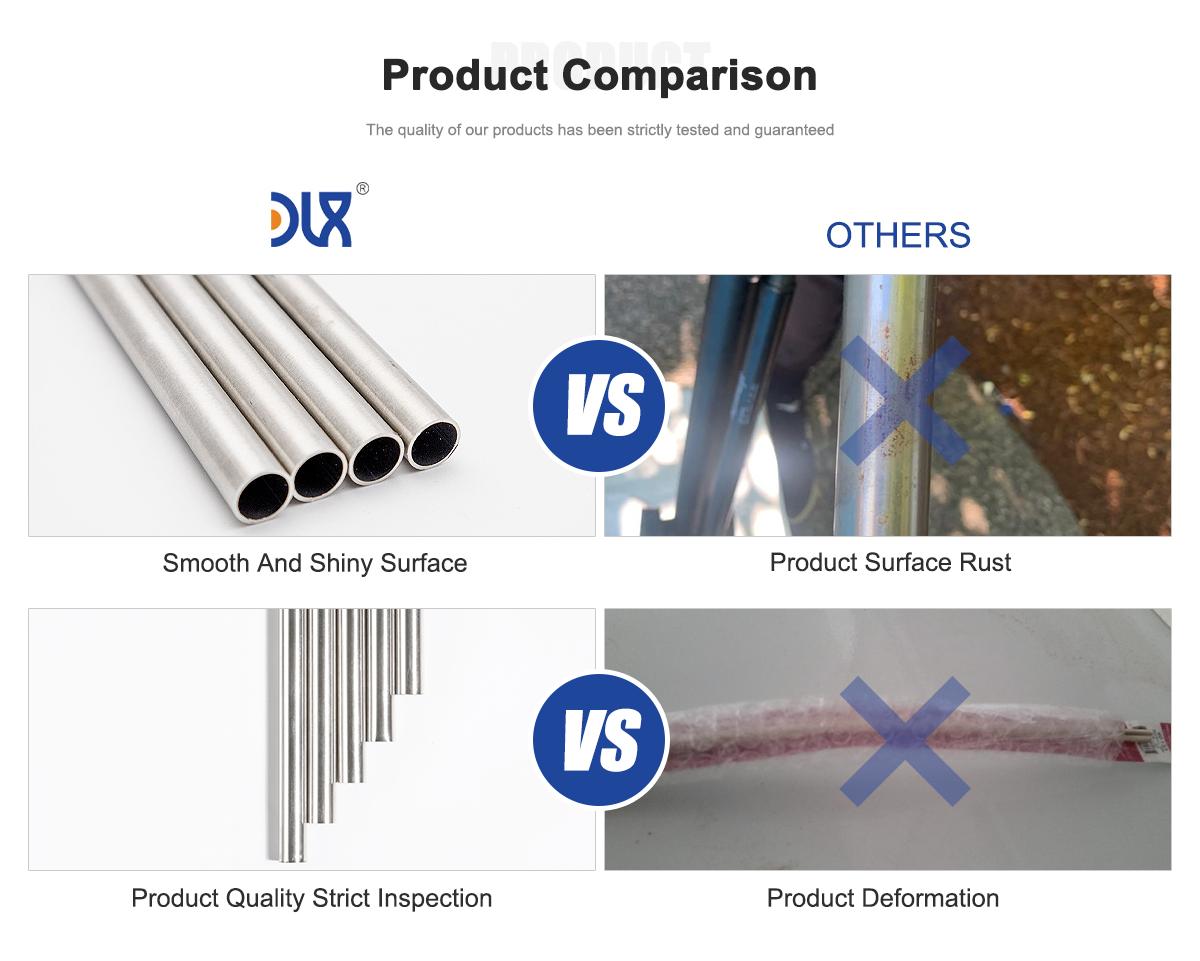
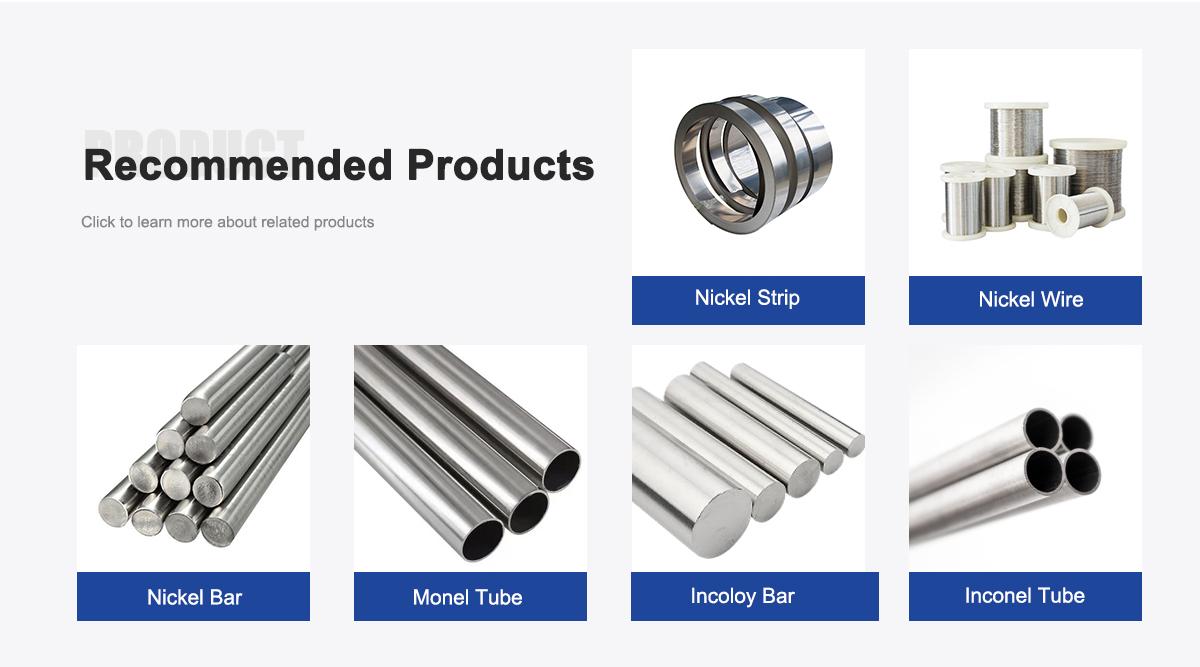
About Us:
Our 12,000㎡ factory is equipped with complete capabilities for research, production, testing, and packaging. We strictly adhere to ISO 9001 standards in our production processes, with an annual output of 1,200 tons. This ensures that we meet both quantity and quality demands. Furthermore, all products undergo rigorous simulated environment testing including high temperature, high pressure, and corrosion tests before being dispatched, ensuring they meet customer specifications.
For all our clients, we offer timely and multilingual after-sales support and technical consulting, helping you resolve any issues swiftly and efficiently.
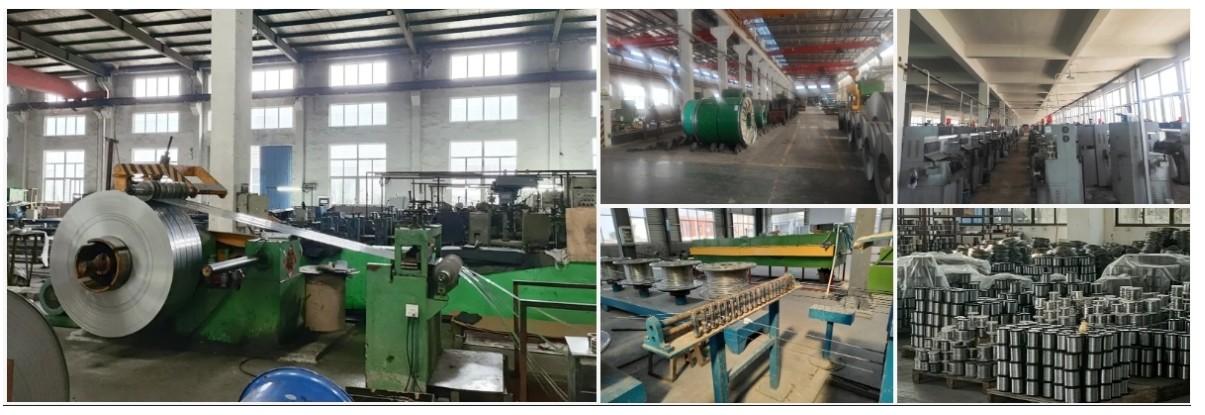
Client Visits
Building Stronger Partnerships
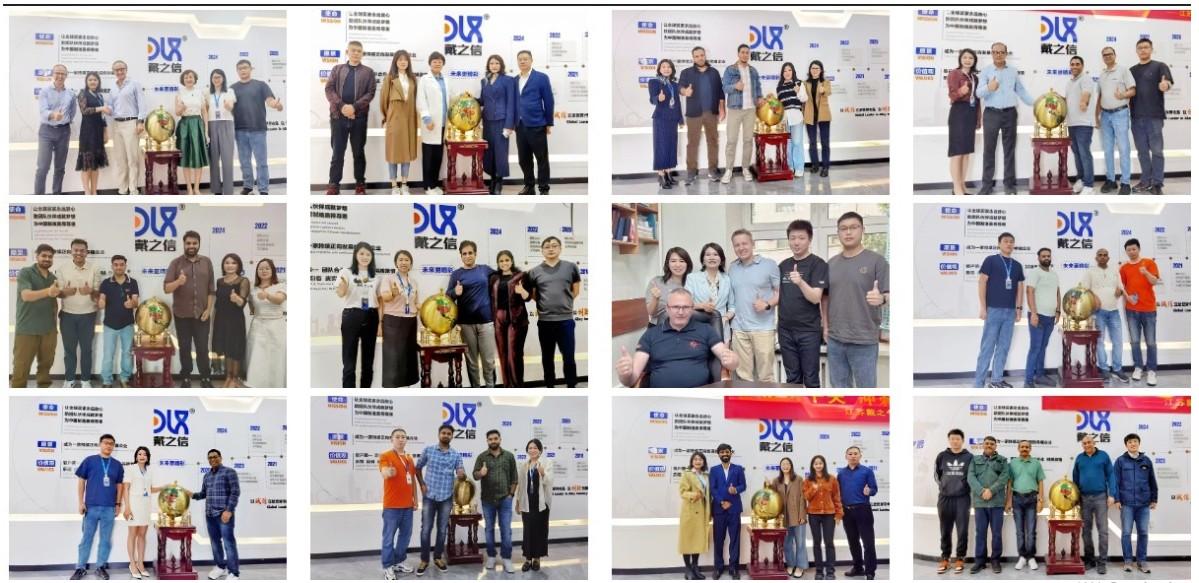
We support all kinds of testing:
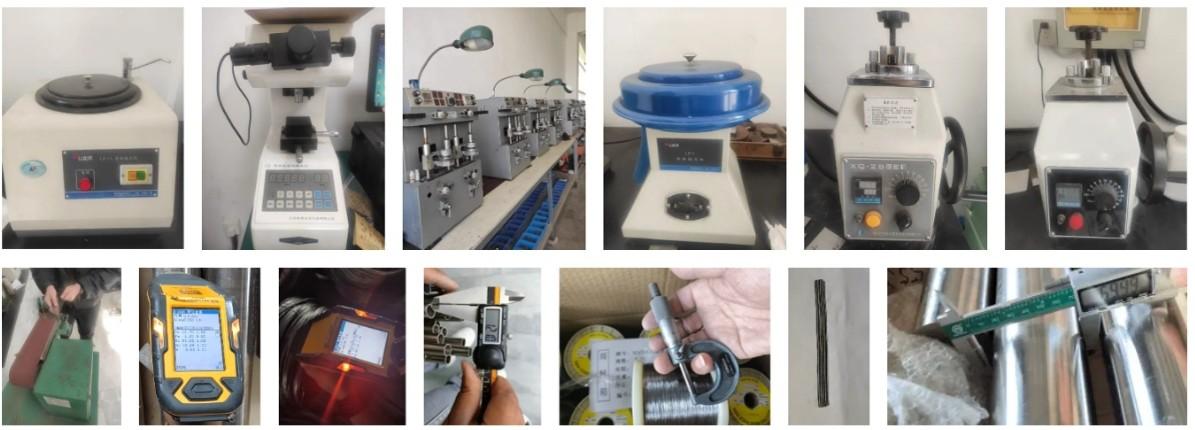

FAQs:
-
What makes Grade 7 titanium tubes ideal for chemical plants?
Their superior corrosion resistance, especially against reducing acids, ensures durability in harsh chemical environments. -
How does Grade 7 titanium compare to other materials in chemical processing?
It outperforms stainless steel and nickel alloys in resisting corrosion from acids like sulfuric and hydrochloric. -
What applications in chemical plants use Grade 7 titanium tubes?
They’re used in heat exchangers, reactors, and piping systems handling corrosive fluids and gases. -
Can Grade 7 titanium tubes handle high temperatures in chemical plants?
Yes, they maintain strength and corrosion resistance at temperatures up to 400°C. -
How long do Grade 7 titanium tubes last in chemical environments?
With proper maintenance, they can last decades, even in aggressive chemical conditions. -
Are Grade 7 titanium tubes customizable for specific chemical plant needs?
Absolutely, we offer tailored sizes, thicknesses, and finishes to match project requirements. -
Why is Grade 7 titanium preferred for reducing acid environments?
Its palladium content enhances corrosion resistance in reducing acids, unlike other titanium grades. -
What industry trends support Grade 7 titanium use in chemical plants?
Increasing demand for durable, corrosion-resistant materials drives adoption in chemical processing and green technologies.

